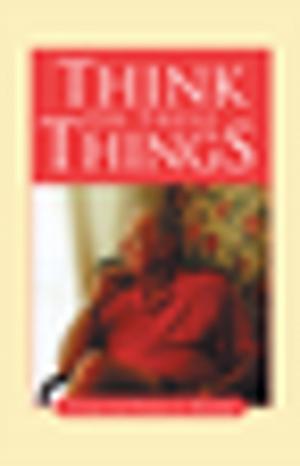| Author: | Barbara Kanowick | ISBN: | 9781453564394 |
| Publisher: | Xlibris US | Publication: | September 20, 2010 |
| Imprint: | Xlibris US | Language: | English |
| Author: | Barbara Kanowick |
| ISBN: | 9781453564394 |
| Publisher: | Xlibris US |
| Publication: | September 20, 2010 |
| Imprint: | Xlibris US |
| Language: | English |
In this tale of ancient China, Persimmon, daughter of a Jewish mold-maker and a Chinese woman, becomes a famous panda painter. Living in the forest of Chengdu Province, she adopts Bampo an orphaned panda bear, but what she has done is illegal, as only members of the royal family can own panda bears. But she has treated Prince Ting Ling with a secret potion when he was gored by a wild boar in the forest of Chengdu. The prince recovered in his palace. His soldiers are sent far and wide to find the girl who saved his life but to no avail. The poacher Che Tu Wa knows that she is living in a little cottage in the forest with her amah and alerts the authorities that the girl has a pet panda bear. Persimmon is arrested and her sentence is to be beheaded. Just then Prince Ting Ling arrives at the court house. He recognizes Persimmon as the young lady who saved his life with the secret potion. He requests a reprieve for the forest girl and offers to marry her. She agrees, providing she can keep Bampo and the story ends happily.
A charming fairy tale set in ancient China with a Jewish twist.
Gathered amid other children, Ping Ling listens as her grandmother tells the story of their famous ancestor Persimmon. Its a genuinely charming opening, and as Ping Lings grandmother narrates, the authors make the reader aware of the importance of the very act of storytelling. Persimmon was the daughter of a Jewish mold-maker and a Han Chinese woman in the third century B.C. She inherits her fathers aesthetic prowess and becomes an excellent panda portraitist. She lives in the forest for inspiration and takes care of a panda named Bampoa pet reserved only for royalty. Persimmon, no royal herself, happens to save Prince Tin Lings life one day in the forest, and after he recovers in his palace he searches for the girl that came to his rescue. Meanwhile, Persimmon is in dire legal straits for having taken a panda as her pet and must stand trial for her crime, facing a possible death sentence. The resolution is fairy tale perfect, and Ping Ling and her playmates are gratified by the tale; the reader will be too, as the prose and Kanowicks simple, black-and-white illustrations are equally charming. But for readers unaware of Judaisms surprisingly long (if limited) history in China, some integrated background or a simple preface would have enhanced the books broader appeal. A brief sketch of a famous example such as the Kaifeng community or a relevant history of the Silk Road wouldve sufficed. There is a playful historical reference when Persimmons father is commissioned by the emperor to build his terra cotta army, and these touches enhance the historical reality while still engaging in the storys allegorical elements that promote love and loyalty. Theres not a word too many in this slim, enjoyable volume, which is great for children not afraid of a little history.
A pleasing childrens story featuring characters with a unique, intriguing cultural background.
- Kirkus Discoveries Review
In this tale of ancient China, Persimmon, daughter of a Jewish mold-maker and a Chinese woman, becomes a famous panda painter. Living in the forest of Chengdu Province, she adopts Bampo an orphaned panda bear, but what she has done is illegal, as only members of the royal family can own panda bears. But she has treated Prince Ting Ling with a secret potion when he was gored by a wild boar in the forest of Chengdu. The prince recovered in his palace. His soldiers are sent far and wide to find the girl who saved his life but to no avail. The poacher Che Tu Wa knows that she is living in a little cottage in the forest with her amah and alerts the authorities that the girl has a pet panda bear. Persimmon is arrested and her sentence is to be beheaded. Just then Prince Ting Ling arrives at the court house. He recognizes Persimmon as the young lady who saved his life with the secret potion. He requests a reprieve for the forest girl and offers to marry her. She agrees, providing she can keep Bampo and the story ends happily.
A charming fairy tale set in ancient China with a Jewish twist.
Gathered amid other children, Ping Ling listens as her grandmother tells the story of their famous ancestor Persimmon. Its a genuinely charming opening, and as Ping Lings grandmother narrates, the authors make the reader aware of the importance of the very act of storytelling. Persimmon was the daughter of a Jewish mold-maker and a Han Chinese woman in the third century B.C. She inherits her fathers aesthetic prowess and becomes an excellent panda portraitist. She lives in the forest for inspiration and takes care of a panda named Bampoa pet reserved only for royalty. Persimmon, no royal herself, happens to save Prince Tin Lings life one day in the forest, and after he recovers in his palace he searches for the girl that came to his rescue. Meanwhile, Persimmon is in dire legal straits for having taken a panda as her pet and must stand trial for her crime, facing a possible death sentence. The resolution is fairy tale perfect, and Ping Ling and her playmates are gratified by the tale; the reader will be too, as the prose and Kanowicks simple, black-and-white illustrations are equally charming. But for readers unaware of Judaisms surprisingly long (if limited) history in China, some integrated background or a simple preface would have enhanced the books broader appeal. A brief sketch of a famous example such as the Kaifeng community or a relevant history of the Silk Road wouldve sufficed. There is a playful historical reference when Persimmons father is commissioned by the emperor to build his terra cotta army, and these touches enhance the historical reality while still engaging in the storys allegorical elements that promote love and loyalty. Theres not a word too many in this slim, enjoyable volume, which is great for children not afraid of a little history.
A pleasing childrens story featuring characters with a unique, intriguing cultural background.
- Kirkus Discoveries Review















